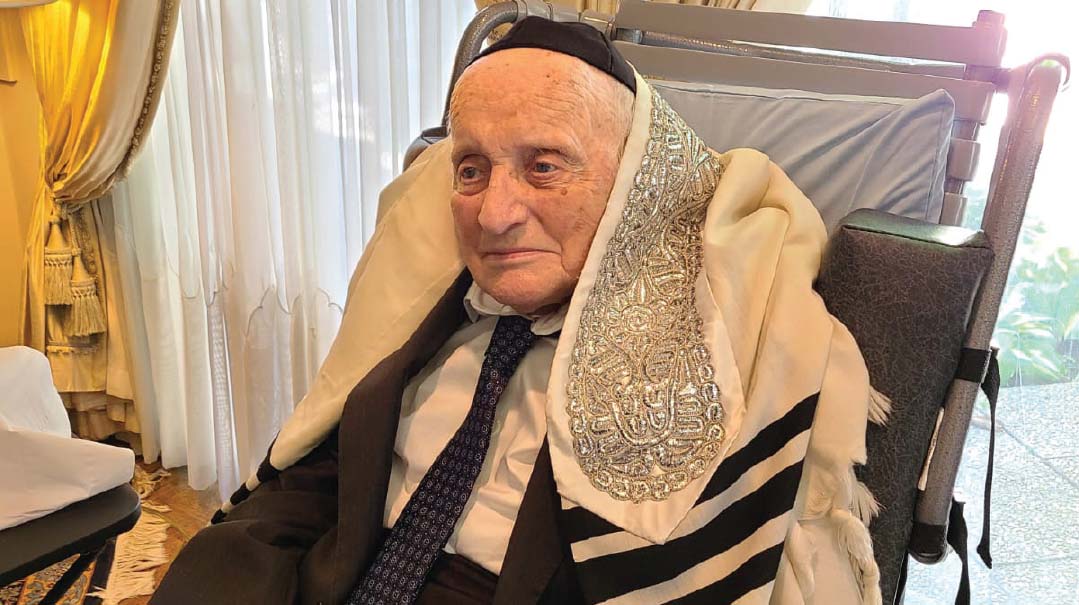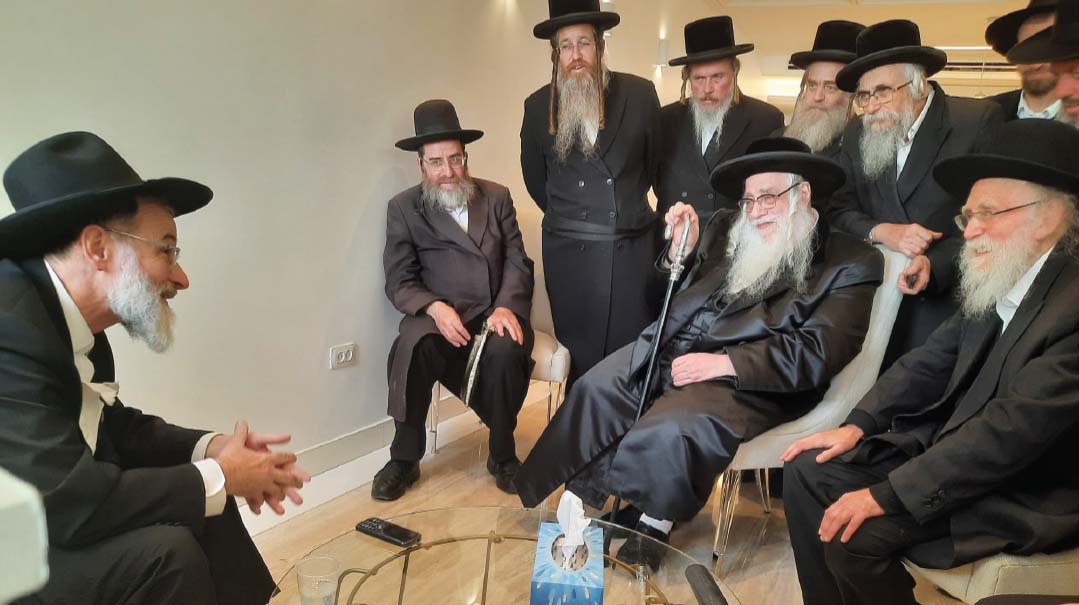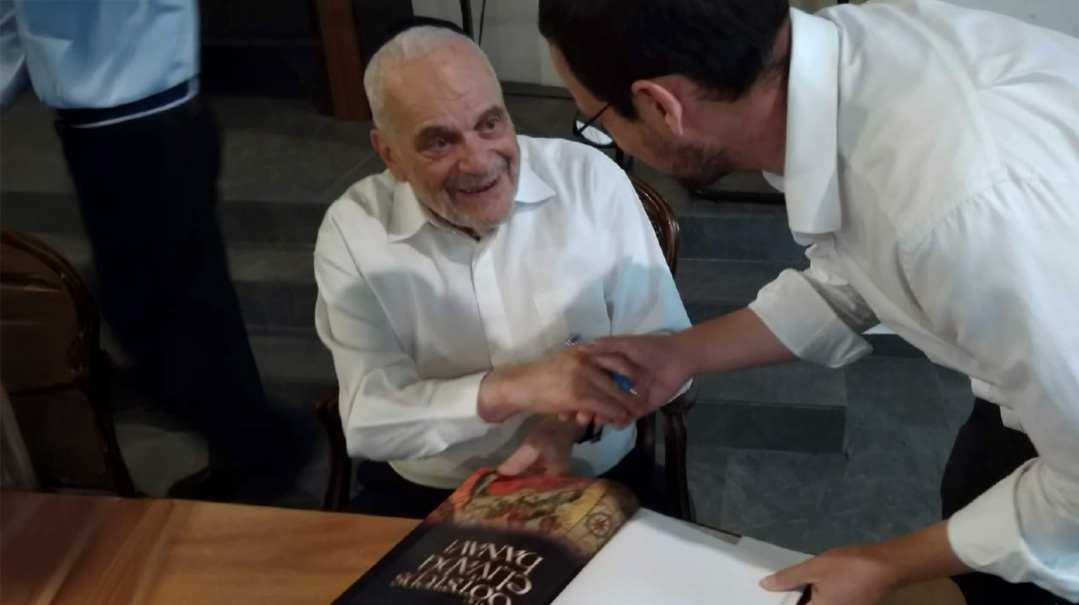Inner Light, Outer Shine

Reb Nosson Nota (Sandy) Hofstedter a”h illuminated both worlds

“Haragil b’ner havyin lei banim talmidei chachamim — One who is vigilant with neiros will merit children who are talmidei chachamim.” Rashi explains this Gemara in Shabbos as referring to both ner Shabbos and ner Chanukah. Why both? Perhaps because these two neiros serve opposite functions. The ner Shabbos remains inside and illuminates the home, while the ner Chanukah permeates the outside with its brilliant, uncompromising light. When you can shine in both worlds, you will merit banim talmidei chachamim.
This past Shabbos Chanukah, as the neiros Shabbos and neiros Chanukah flickered in harmony, the neshamah of Reb Nosson Nota Yitzchak Hofstedter ascended heavenward.
Reb Nosson Nota Yitzchak (better known as Sandy) was one of those special people whose light shined both inward and outward. His Toronto home was an epicenter of unwavering support of Torah, as well as an endless flow of chesed. But he propelled that light outward as well. As the real estate corporation he built saw unfathomable success in the highest echelons of corporate Canada, as his housing developments expanded and his buildings shaped skylines, the inner flame shone ever brighter.
As his son Reb Dovid said at the levayah, Sandy’s first name was Nosson — a palindrome, reading the same both backward and forward. And that’s how Reb Sandy was — backward and forward, able to unite such divergent influences, the ner Shabbos and ner Chanukah flickering simultaneously throughout his lifetime.
Reb Sandy was escorted on his final journey by scores of children, grandchildren, and great-grandchildren — among them talmidei chachamim of the highest order, authors of seforim, and stalwart supporters of Torah. And the thousands of lomdei Torah supported by his generosity, the countless mosdos he built, are all, in a sense, his children.
A grandson relates that he was once on a plane when the stewardess approached with a tray and said, “Kosher meal Hofstedter?” He responded, “Yes, that’s me.” Just then, a fellow across the aisle who heard the grandson say his name turned around and said, “By any chance, are you related to Sandy Hofstedter?” He answered, “Yes, that’s my grandfather.” The man responded, “Allow me to shake your hand. I had the honor to work with your grandfather once, and I was opposing counsel in a transaction. That man is as honest as the day is long. It’s a rarity and a treat to work with a man of such character. You should be proud.”

During the shivah, visitors shared a question: In what merit was Reb Nosson Nota Hofstedter blessed with a generation of progeny that have generated so much Torah learning in Am Yisrael, and especially at the hand of his son Rav Dovid Hofstedter, founder of Dirshu?
Maybe part of the answer lies in the visit to the shivah house by a man who no one knew. He came to tell the family about his own life — how his parents didn’t want to send him to yeshivah and how Sandy Hofstedter convinced his parents to send him to Ner Israel Toronto and told them not to worry about tuition. The man said that years later, he and his children are frum, thanks to Reb Sandy.
And maybe another part of the answer lies in what the Bostoner Rebbe related during the shivah, something he heard from his mechutan, Rav Shalom Weiss, the Ujheler Rav (a first cousin of Reb Nosson Nota Hofstedter). He related that the grandfather, Reb Zev Hofstedter, would often visit Rebbe Yankele of Komarna for advice and a brachah. After Rebbe Yankele's passing, Reb Zev began to go to Rav Shalom Eliezer of Ratzfert, the sixth son of the Divrei Chaim of Sanz.
Around the year 1931, Reb Zev was preparing to make a chanukas habayis and invited the Ratzferter Rebbe to participate. The night before, when Reb Zev slept, he saw in a dream the Komarna Rebbe holding his arm tightly and demanding why he was not going to his son, Rebbe Shalom of Komarna. When Rev Zev woke up from his dream, he felt pain in his arm, and when he rolled up his sleeve, he saw that it was red. Immediately, Reb Zev invited Rebbe Shalom to participate in the simchah as well.
During the chanukas habayis, Rev Zev asked Rebbe Shalom for a brachah for his son, Reb Nosson Nota. And before they parted, Reb Zev again asked for a brachah. The Rebbe said, “I have already given a brachah.” But Reb Zev insisted, and the Rebbe acceded and blessed him again.
Perhaps it was that double brachah that helped Reb Nosson Nota survive the Holocaust and establish a new generation, and the great success of that generation in establishing Dirshu and disseminating so much Torah in Klal Yisrael.
(Originally featured in Mishpacha, Issue 890)
Oops! We could not locate your form.







